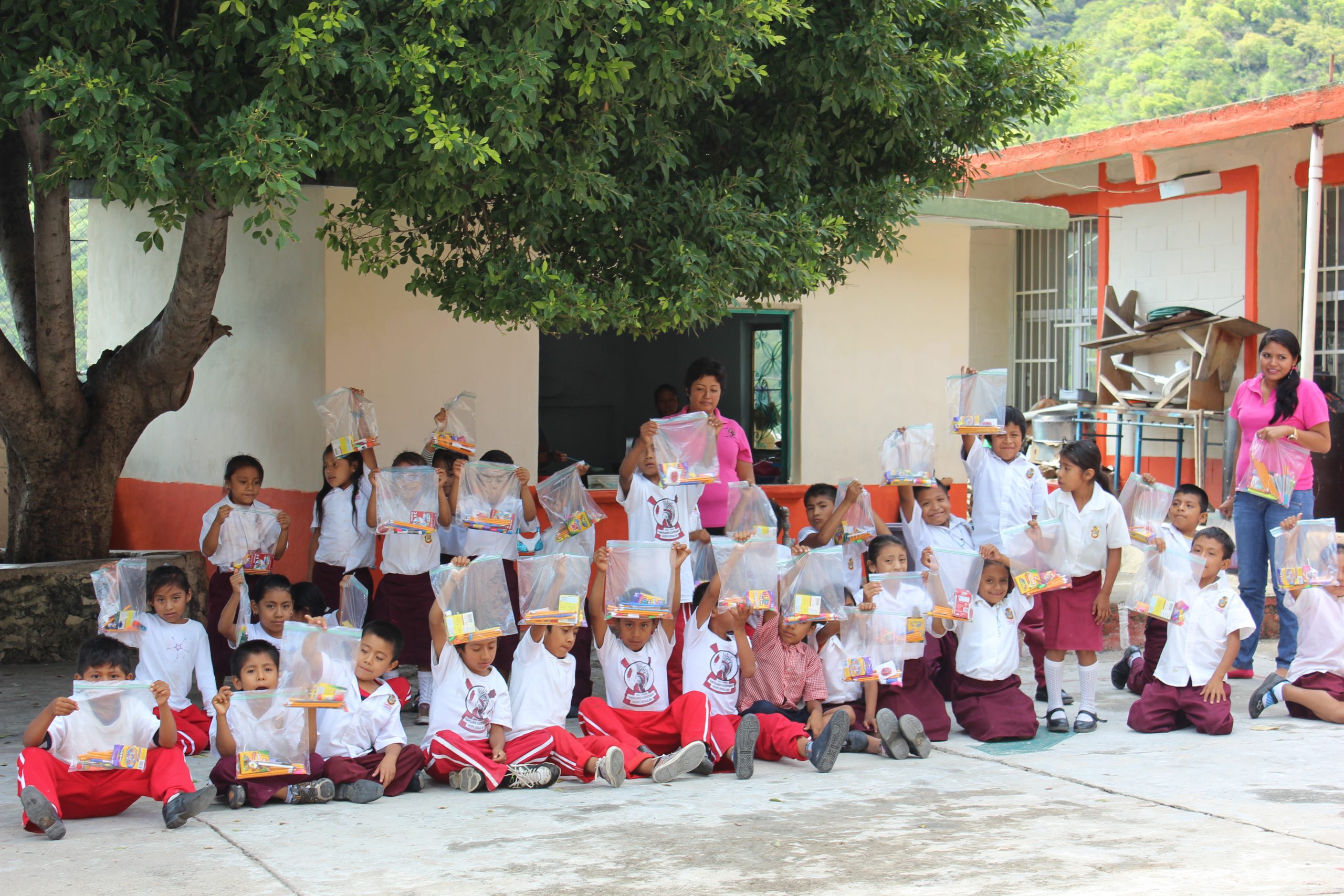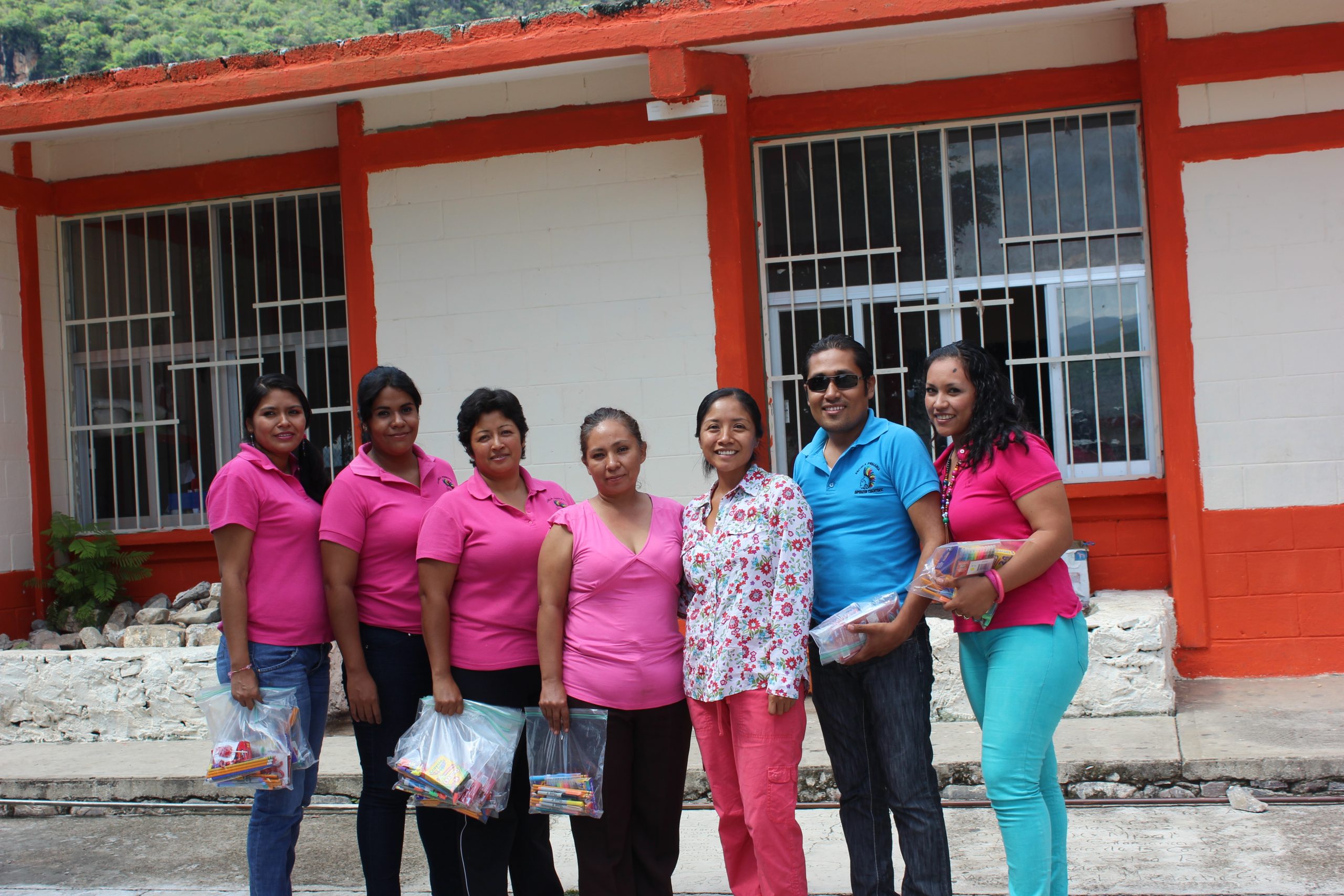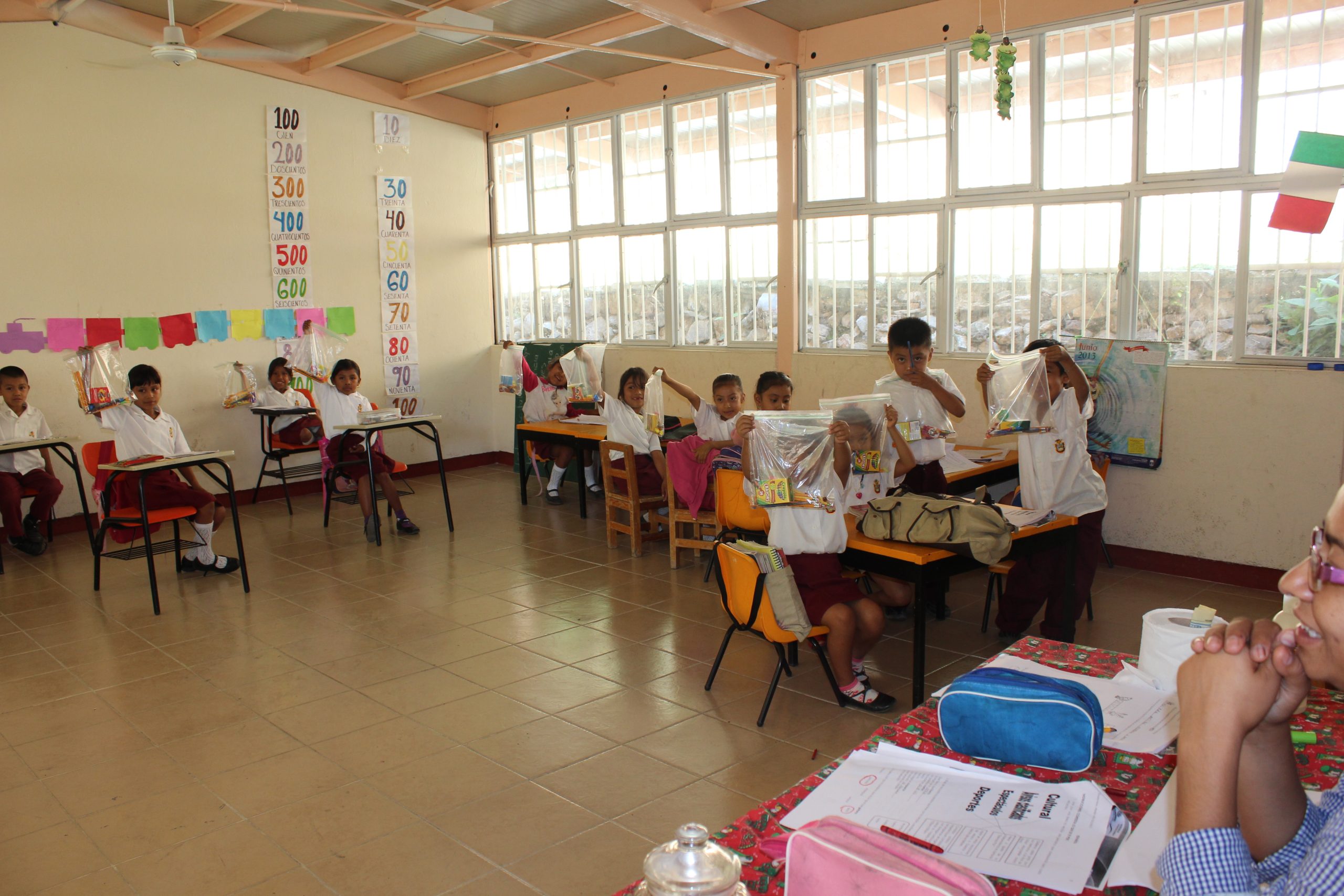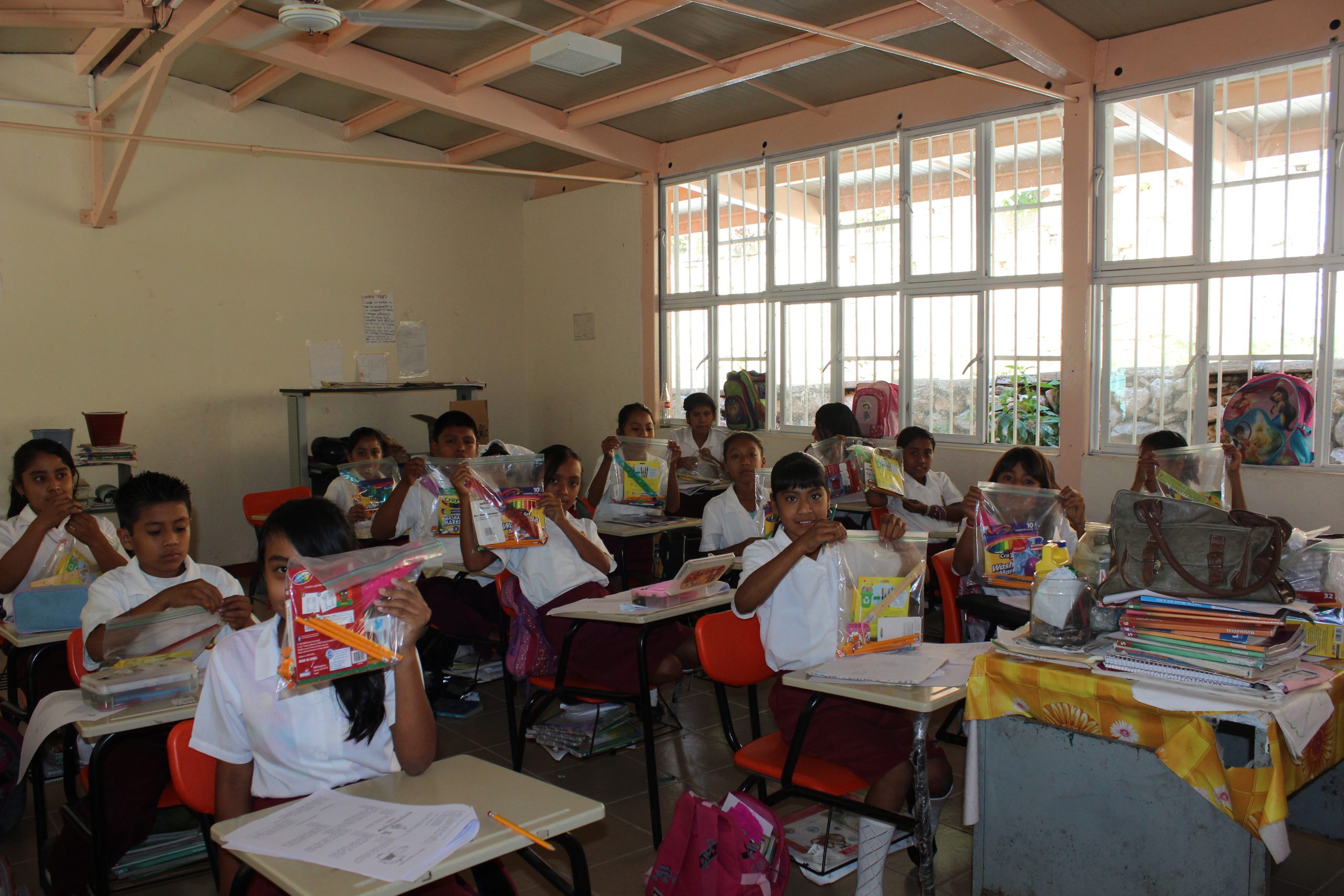
Immigrants who belong to a hometown association in Mesa, Arizona donated school supplies for students in Coatepeque, Guerrero, a rural town in Mexico. (Photo by Rosalva Lagunas)

Teachers in the small rural town Coatepeque, Guerrero hold school supplies donated by immigrants in Mesa, Arizona who belong to “Mi Tierra, Mi Familia,” a hometown association. (Photo by Rosalva Lagunas)

A teacher from Mesa led the effort to collect school supplies for students in Mexico to keep her father’s dream of giving back to his hometown of Coatepeque, Guerrero. (Photo by Rosalva Lagunas)

Mexican immigrants living in Mesa who belong to a hometown association donated school supplies to help students in four schools in the small rural, community Coatepeque, Guerrero. (Photo by Rosalva Lagunas)
MESA — Thousands of immigrants in the U.S. who maintain strong ties with Mexico are working together and pooling resources to improve life back in Mexico through hometown associations.
Rosalva Lagunas, a teacher, is the vice president of ‘Mi Tierra Mi Familia’, a hometown association based in Mesa, Arizona, collects school supplies for the small rural town Coatepeque in Guerrero, Mexico.
“I know how hard it is for us teachers, to get supplies for our kids, and it is hard here, I could just imagine how hard it could be there too,” said Lagunas.
With donations from members and fundraising, she was able to deliver school supplies to two pre-schools, and two elementary schools in the small rural, community three years ago.
She and others with Mi Tierra Mi Familia are collecting more school supplies for students in the town now.
Lagunas, a U.S. citizen and the daughter of immigrants, keeps her father’s dream of giving back to his hometown in Mexico alive.
Arizona has more than 57 hometown associations that connect immigrants with mostly poor, rural communities in Mexico according to a researcher at the School of Transborder Studies at ASU who studies the impact of the associations.
“They are really important.” said Francisco Lara-Valencia, director of transborder communities at the School of Transborder Studies, adding that the associations “really promote, emphasize and facilitate” understanding and cooperation.
“They speak about the very strong connection between and across the border,” Lara-Valencia said.
Many hometown associations are involved in philanthropic work but they also strengthen cross border cultural and economic ties.
“They give us an example of the complexity and diversity of the relationship that exist across the border, Mexico and the US,” said Lara-Valencia.
For many the ties that bind last a lifetime. “We help out so that when we return, we and our children will benefit.” Francisco Ocampo, the president of Mi Tierra Mi Familia says.
-Cronkite News video by Clara Benitez